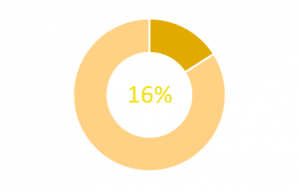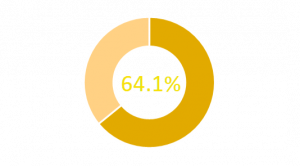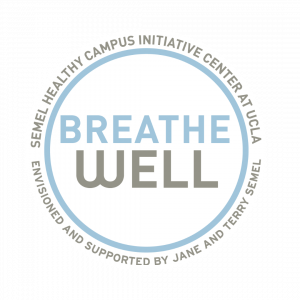WEED LIKE TO KNOW
Important information about recreational marijuana for UCLA students, staff, and faculty
Policy Information
All forms of marijuana are banned.
This means no vaping, smoking, or edibles, etc. despite the passage of Proposition 64
According to the University of California Office of the President
- Marijuana is not allowed on any “university-owned and leased buildings, housing and parking lots.”
- This includes residence halls and off-campus apartments.
- Marijuana is not allowed at any “university events or while conducting university business.”
- This includes sporting events at the Rose Bowl and Pauley Pavilion.
- Some employees and physicians may be subject to stricter policies regarding marijuana or cannabis use.
- Check with your direct supervisor.
Possible consequences of prohibited marijuana use or possession at UCLA, depending on frequency and severity, include:
Legal Consequences
- Fines: could cost up to $10,000 per violation
- Jail sentence: could include felony charges for cultivation and sale
University Consequences
- Denial or loss of Federal Financial Aid
- Exclusion from housing or University events
- Mandatory participation in educational programs
- Loss of specific privileges
- Community service
- Restitution
- Letter of apology
- Restorative justice
ACKNOWLEDGEMENT
We thank the UC Global Food Initiative for sponsoring Student Fellow Katy Eyberg’s brochure development work and for sponsoring printing costs through the Healthy Campus Network. We also thank Elloi Delos Reyes for additional work on this brochure.
Health Information
- Marijuana use may contribute to a variety of short- and long-term effects, including:
- Changes in mood
- Memory loss
- Altered senses of taste, sight, hearing, and/or time
- Difficulty thinking and problem solving
- Impaired coordination and movement
- Breathing problems
- Increased appetite
- Laughter
- Certain marijuana extracts may help treat some chronic conditions, but the FDA does not recognize marijuana as a medicine.
- Medical marijuana research is ongoing.
- THC, the mind-altering chemical in marijuana, exists in higher levels today than it did in the past. This means even small quantities of marijuana could have strong health effects.
- Marijuana can be detected in the body for several days – even weeks – after use.
Resources
Seek help if marijuana use is negatively impacting your education, work, relationships, or finances.
- UCLA Counseling and Psychological Services (CAPS)
- UCLA Student Legal Services
- UCLA Arthur Ashe Student Health & Wellness Center
- UCLA Dean of Students
Additional Resources
- UCLA Cannabis Research Initiative
- Bruins for Recovery
- Call the UCLA Addiction Medicine Clinic: 310-825-9989 for appointments
- The Matrix Institute
- Drugabuse.gov
- California Department of Public Health
Marijuana Use
A 2016 Student Affairs Information and Research Office (SAIRO) report of UCLA undergraduate and graduate students found that…
16% of UCLA students reported using marijuana within the last 30 days.

A majority of UCLA students (64.1%) reported having never used marijuana.

This report was generated from National College Health Assessment data in 2016. Read the executive summary here.
References
- https:/dos.uoregon.edu/marijuana
- http:/www.ucop.edu/marijuana-and-drug-policy/
- https:/www.drugabuse.gov/publicationsdrugfacts/marijuana
- http:/healthinfo.uclahealth.org/Wellness/Stress/NewsRecent/1,1925
- http:/vig.cdn.sos.ca.gov/2016/general/en/pdf/text-proposed-laws.pdf
- https:/www.drugabuse.gov/publicationsdrugfacts/marijuana-medicine
- https:/ballotpedia.org/California_Proposition_64,_arijuana_Legalization_(2016)
- http:/newsroom.ucla.edu/dept/faculty/passage-of-prop-64-leaves-ucs-marijuana-policy-unchanged
- http:/www.sairo.ucla.edu/Portals/54/Documents/Briefs%20and%20Reports/Reports/NCHA/2014/NCHAExecutieSummary2014.pdf
